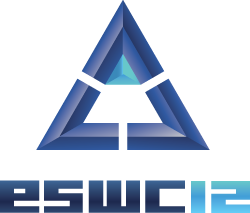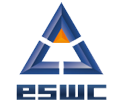Call for Tutorials
ESWC 2012 invites tutorials that address the interests of its varied audience: people new to the Semantic Web, Semantic Web researchers and practitioners that wish to learn new technologies, users of Semantic Web technologies, and representatives of government and funding agencies as well as potential private investors in Semantic Web technologies. We welcome submissions of tutorial proposals on all major topics related to semantic technologies, including, but not limited to those covered by the research, in-use and special tracks of the conference:
- Semantic Web In-Use
- Ontologies
- Reasoning
- Semantic Data Management
- Social Web and Web Science
- Linked Open Data
- Semantic Web Data in the Cloud
- Processes, Services and Cloud Computing
- Natural Language Processing
- Sensor and Mobile Web
- Machine Learning
- Digital Libraries and Cultural Heritage
- EGovernment: Using Semantics for Promoting Interoperability in the Public Sector
We especially solicit proposals for tutorials of the following types:
- Tutorials with a coherent theme providing an introduction to new semantic technologies and trends.
- Tutorials describing the application of semantic technologies in specific domains (e.g., life-sciences, e-government, e-commerce etc.).
- Tutorials presenting techniques from other research fields that are of relevance for Semantic Web research especially in relationship to the tracks of the conference (e.g., techniques from social science, database techniques, NLP techniques etc.).
Tutorials may focus entirely on theoretical aspects; however, we encourage organisers to incorporate hands-on sessions where appropriate. The tutorials should reach a good balance between the topic coverage and its relevance to the community.
In the interest of the overall quality of the conference, tutorial chairs reserve the right to merge tutorials and/or adjust the scope thereof in the case in which a mimimum number of registrations is not reached by the early registration deadline.
Important Dates
| Tutorials proposal due | January 13th, 2012 - 23:59 Hawaii Time expired |
| Notification of acceptance of tutorials | January 27th, 2012 - 23:59 Hawaii Time expired |
| Web site for accepted tutorials online | February 15th, 2012 - 23:59 Hawaii Time expired |
| Camera-ready tutorial material submission | April 28th, 2012 - 23:59 Hawaii Time expired |
Submission
Submission will be through the Easychair system: https://www.easychair.org/account/signin.cgi?conf=eswc2012
Timeline for Tutorials
| Proposal submission: | January 13, 2012 |
| Notification of acceptance/rejection: | January 27, 2012 |
| Deadline for receipt of URL for tutorial web page: | February 10th, 2012 |
| Camera-ready tutorial material submission: | April 28th, 2012 - Tutorial days at the conference |
Responsibilities
Organizers of accepted tutorials are responsible for preparing and maintaining a Web site that describes the tutorial and includes all relevant information. Organizers are also responsible for submitting the material to be given to attendees (slide sets, additional teaching material, software installation and usage guides for practical hands-on sessions, etc.) to the Tutorial Chair. The ESWC 2012 Organizing Committee is responsible for providing publicity for the tutorials as part of the conference publicity activities, and on-site logistical support to the organizers and attendees.
Proposal Submission
Tutorial proposals should not exceed 5 pages, using an 11 pt font for the body of the text of the proposal and should contain the following information:
- Abstract (200 words maximum, for inclusion on the ESWC 2012 website).
-
Tutorial description: More specifically, it should
- specify the objective of the tutorial and relevance to ESWC 2012
- include enough details on the scope of the material to be covered and the depth to which it will be covered and
- specify the intended audience and any prerequisite knowledge. Appropriate references to the material to be covered by the tutorial must be included.
- Tutorial length. The tutorial can be full or half day (if the tutorial can be either length, please be sure to identify which material is included for each length).
- Other venues to which the tutorial or part thereof has or will be presented, and explain how the current tutorial differs from the other editions. Links to the slides of those tutorial editions should be included in the proposal.
- Brief professional biography of the presenter(s) indicating previous training and speaking experience (such as teaching and tutorial presentation).
Tutorials Chairs
Emanuele Della Valle
Politecnico di Milano, IT
Irini Fundulaki
CWI and Institute of Computer Science - FORTH















